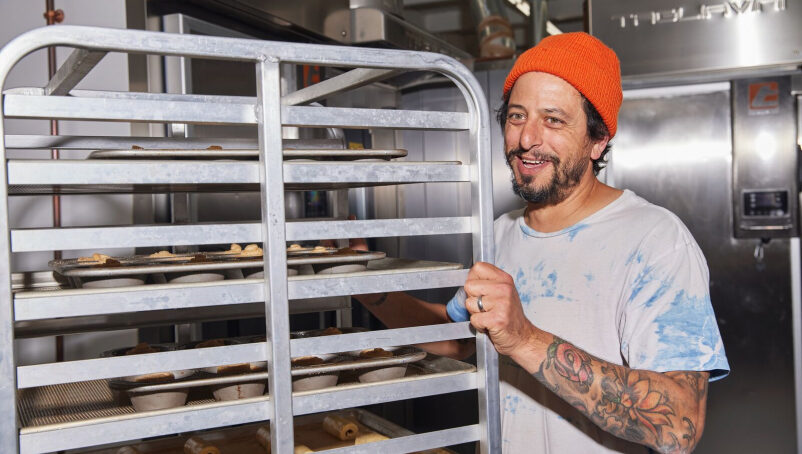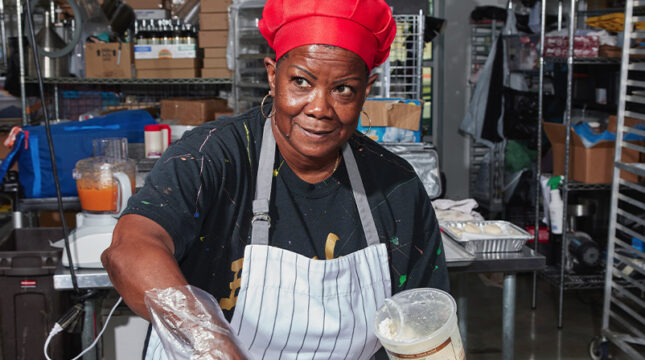Who needs a California food manager certification?
According to California state law, almost every California business that serves food must have a designated certified food manager. California restaurants must have at least one food manager, although they don’t need to always be present. You must earn a California food safety certification if you don’t have employees.
A few types of food service businesses are exempt from the certified food manager requirement:
- Temporary food facilities where the owner can demonstrate adequate food safety knowledge
- Food establishments that only sell prepackaged food
- Winegrowers or brandy manufacturers conducting tastings under the proper license
How to get California food manager certification
To earn a food protection manager certification, California workers must complete an American National Standards Institute (ANSI) food manager training course and pass the exam.
While Riverside, San Bernardino and San Diego counties offer distinct food handler certifications, each accepts ANSI food manager certifications.
Food manager courses cover various topics related to food safety, including:
- Foodborne illnesses and prevention
- The time and temperature relationship
- Personal hygiene procedures
- Food contamination and cross-contamination
- Cleaning and sanitizing equipment and utensils
- Facility design, layout and construction as it relates to food safety
- Identifying food safety problems and solutions
- Food allergens and preventing allergic reactions
After completing the ANSI food manager course, participants need to pass an 80-question exam on the topics covered in training to earn their certification.
To earn a California food protection manager certification, food managers must complete at least eight hours of training, including the exam.
Once a food manager has completed an ANSI food manager course and passed the exam, they are issued an official certificate. This certification must be kept on file at the food facility at all times and made available for inspection by an enforcement officer upon request.
Certified food managers are required to renew their certifications every five years. To renew their food manager license, they must pass an approved exam again. After completing the recertification process, the food manager will receive a new food manager certificate.
Insurance for California restaurants, caterers, cafes and food service
You can help protect your food service business from many types of everyday risks with the right California business insurance. Restaurant owners in the state may want to consider these insurance options:
General liability insurance
General liability insurance can help cover related costs if your business is held liable for certain accidents that cause property damage or a third-party injury.
Food service general liability insurance can also cover industry-specific risks, such as foodborne illness coverage, which may help protect your business if a customer gets sick from contaminated or incorrectly prepared food.
Restaurants that serve alcoholic beverages may also want to consider California liquor liability insurance, which can help protect your business from risks associated with serving alcohol.
Workers’ compensation insurance
Workers’ compensation insurance can help provide important coverage for lost wages and medical expenses if an employee gets hurt on the job. All California businesses with one or more employees are required to carry workers’ comp insurance.
Commercial property insurance
California commercial property insurance can help protect your physical business assets, including inventory, equipment, furniture and buildings. This type of insurance can help pay for repairs or replacements of these assets if they are damaged in a covered event, such as a burst pipe or fire.
Commercial auto insurance
Commercial auto insurance can help cover medical expenses, property damage and other related costs if you or an employee gets into an accident while driving a work vehicle.
All vehicles in California need minimum auto insurance coverage of $15,000 per person, $30,000 per accident and $5,000 for property damage.
How much does California food manager certification cost?
Earning a California food manager certification online or in person through an ANSI-accredited program is possible.
California law requires at least one food manager examination option costing $60 or less, including the certificate.
Restaurant owners do not have to cover the food manager certification course or exam cost. Although a certified food manager may only act as the person in charge at one food establishment at a time, they can use this certification at other restaurants if they change jobs.
Food safety manager certification reciprocity
ANSI-accredited food manager certificates are recognized across California. Food managers from outside California may receive reciprocity for their certifications if they are from an approved ANSI program.
Restaurant owners should be aware that Riverside, San Bernardino and San Diego counties have their own food handler certification requirements for other employees.
Food manager certification vs. food handlers card
Food managers are not the only food service employees in the state who must be certified. All other California food service employees must complete an approved ANSI-accredited food handler training program within 30 days of employment.
Employees needing California food handler licenses include servers, chefs, cooks, bartenders and hosts. Bussers and supervisors also often need a California food handler card.
The certified food manager oversees these food handlers. The food manager’s duties include:
- Monitoring safe food preparation and service
- Ensuring all food handlers have sufficient knowledge of safe food-handling practices
- Developing establishment-tailored policies addressing related food safety issues
- Conducting ongoing food safety training to ensure employees follow food safety procedures
You can help protect your business by employing food service workers with food handler cards or food safety manager certification. California training covers proper food handling and preparation techniques that reduce the risk of foodborne illness or allergic reactions.
How NEXT helps support California restaurants and food business owners
NEXT provides tailored California restaurant insurance policies designed for small businesses and self-employed business owners.
It only takes about 10 minutes to get a quote, review your coverage options, choose your policies and download a certificate of insurance.
Our team of licensed insurance advisors is standing by to assist you if you have any questions along the way.
Start a free quote with NEXT.





